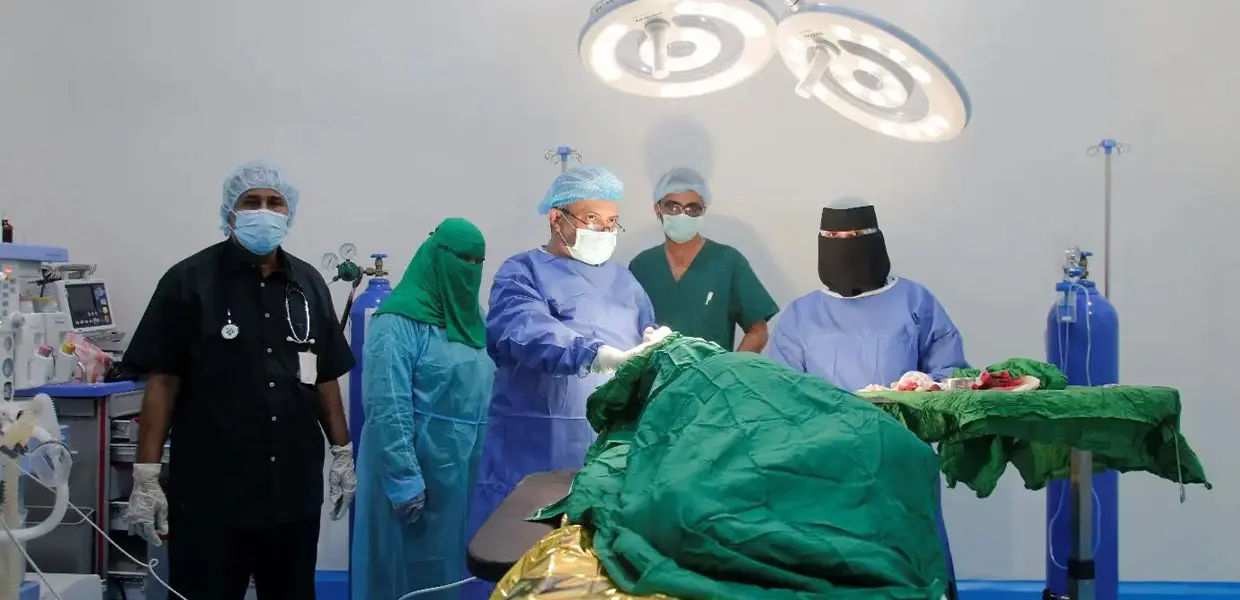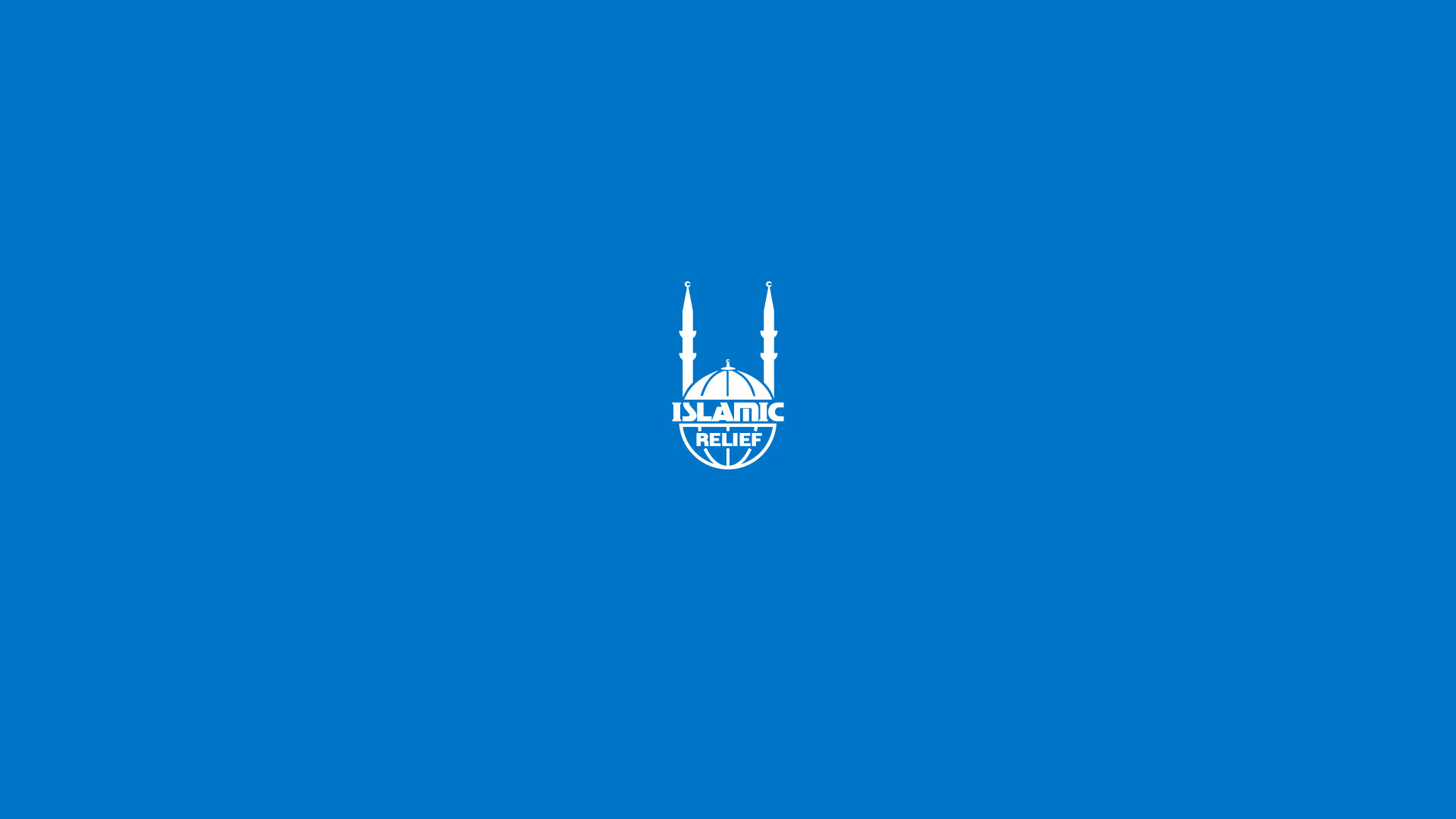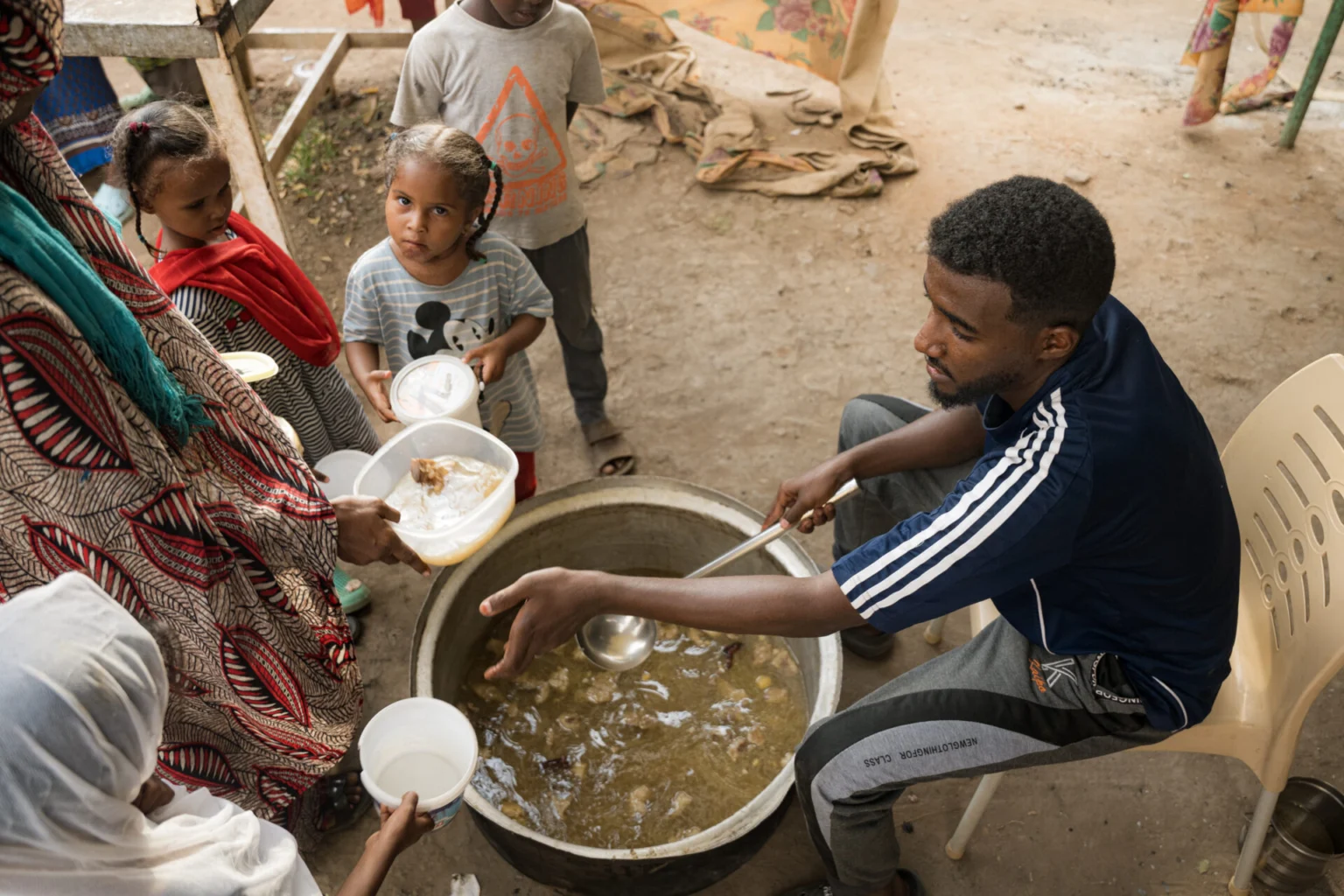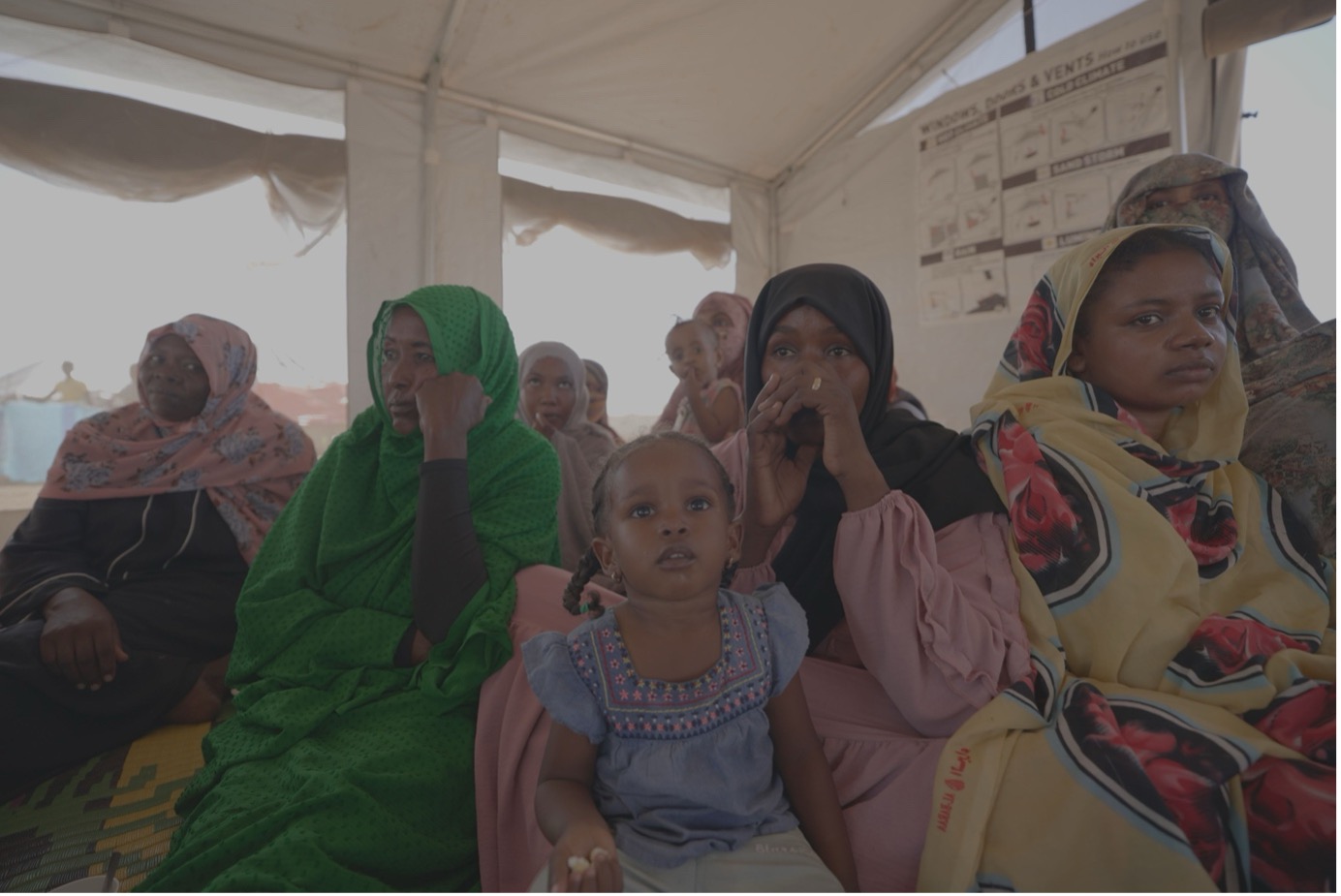
08.19.25
Sudan’s collapse, carried on local shoulders
As systems fail, displaced doctors operate without pay, families shelter strangers, and aid workers navigate chaos. Ahead of World Humanitarian Day, their #ActForHumanity in Sudan defies despair.
Two years of war have shattered Sudan’s already limited health services, leaving communities to shoulder the crisis. In Gedaref’s Alameen Hospital, an eastern Sudanese facility near the Ethiopian border, overcrowded wards force two patients to share a single bed. A third rests on a couch. Others, with nowhere else to go, receive treatment and vanish back into the streets they walked in from, carrying wounds and illnesses back to makeshift shelters.
“The responsibility grows heavier every day,” says Dr. Abdalbasit Alameen, the hospital’s director. “People arrive having lost everything: homes, livelihoods, even the certainty of their next meal. Now imagine they also need lifesaving antibiotics we cannot provide.”

A health system on life support
When Khartoum’s medical factories were bombed, supply chains snapped. Now, Dr. Alameen’s hospital – serving 200,000+ displaced people - functions at 30% capacity. His team reuses gloves, rations anaesthesia, and faces impossible choices: “Repair the last infant incubator or buy malaria pills for 50 children?” Across conflict-affected areas, many facilities have shut or can no longer function safely, forcing families to travel long distances or go without care.
As World Humanitarian Day approaches under the banner #ActforHumanity, the stories emerging from Gedaref, a border state absorbing wave after wave of displacement, reveal a painful truth: when institutions collapse, only the compassion of people and the persistence of aid workers keep the system going. Our organisation, alongside other international NGOs, works hand-in-hand with local communities to patch together what remains.
Filling cracks in a system that is shattered
From Islamic Relief’s field office in Gedaref, country director Elsadig Elnour witnesses both the desperation and determination. “We are not saviours but partners in a collective effort,” he says. “Our goal is to fill the gaps left by the shattered infrastructure, and ensure essential supplies and support reach those trying to survive in displacement camps and overstretched hospitals.”
The complexity of Elsadig’s role mirrors the crisis itself: ensuring his staff coordinates deliveries of scarce medical supplies, emergency nutritional support, and logistical aid through fractured routes and volatile zones. “Every shipment we deliver represents days of negotiation, planning, and risk management,” he explains. “But the relief in exhausted doctors’ eyes and the quiet thanks from families remind us why we stay.”
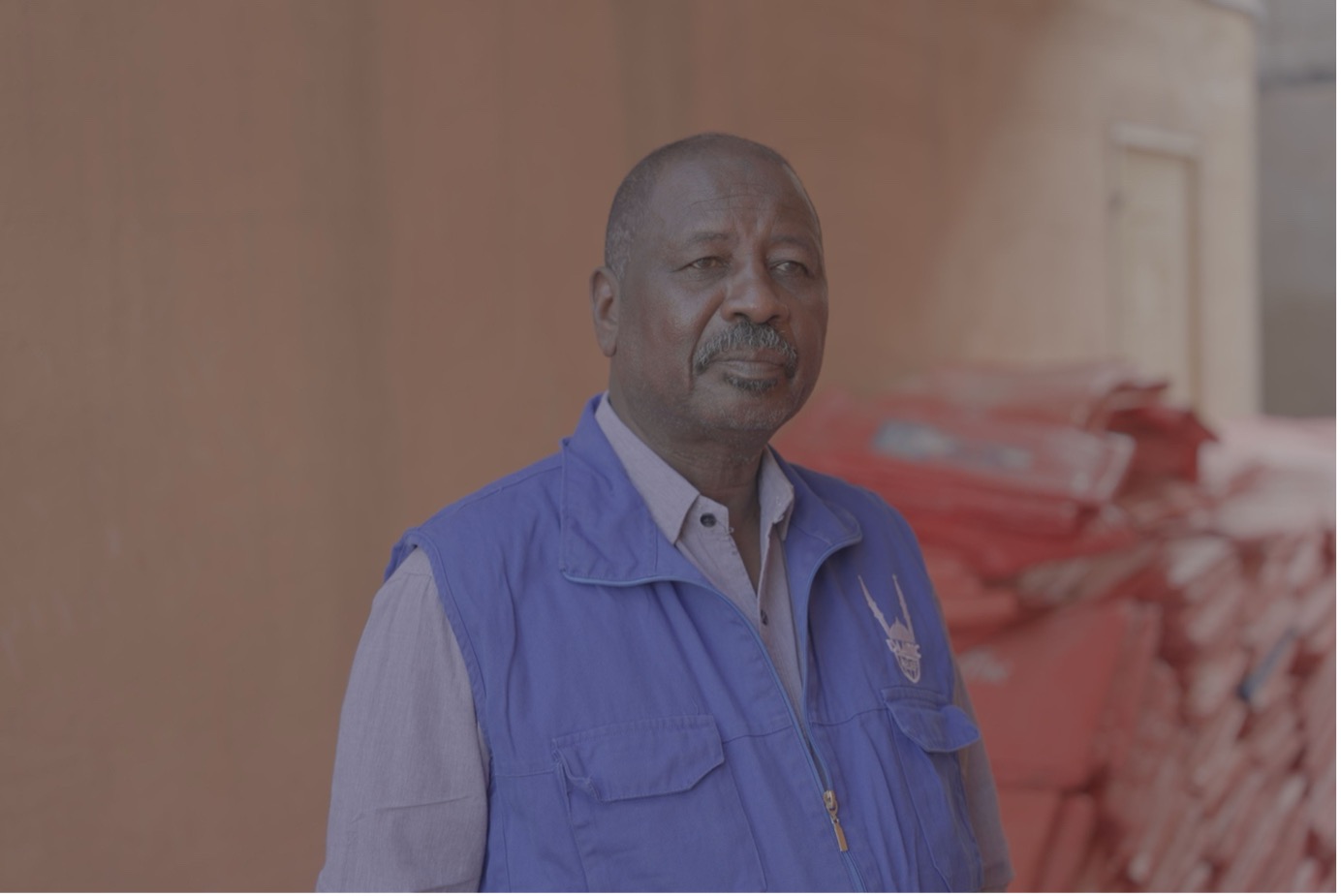
Communities as first responders
About 70 kilometres from Gedaref town, in the village of Hamra in Gedaref State, Rabha Saeed has rebuilt a life in displacement. “When displaced people approach your home, you simply take them in. You share your bread,” says Rabha, herself displaced from Omdurman after burying her sister amid airstrikes. She now shares a cramped home with 7 family members. “We arrived with nothing. No money, no food. But thank God, the community welcomed us.”
This grassroots compassion defines Gedaref’s response. University students ran Ramadan campaigns collecting clothes, mosquito nets, and sorghum for new arrivals. Locals converted schools into shelters despite overcrowded classrooms and children sleeping on mud floors during the rains. Still, as Rabha notes, solidarity has limits: “If displaced people cannot find work, the burden falls on those who host them.” Rabha says. She is among many who lost government employment during the crisis. “INGOs gave us monthly support. When they left, we were left crying for ourselves.” We need organisations like Islamic Relief that stay back when most leave.

Stand for humanity
Elsadig echoes her call for action. “Humanitarian response isn’t just about immediate relief,” he says. “It’s about helping communities stand on their own again. Islamic Relief is committed to staying, but this work needs sustained investment and collective global action.”
“The international community must act, not tomorrow, now. Our shared humanity demands it.”
Donate to our Sudan emergency appeal now to help empower Sudan’s communities as they rebuild their own future.


